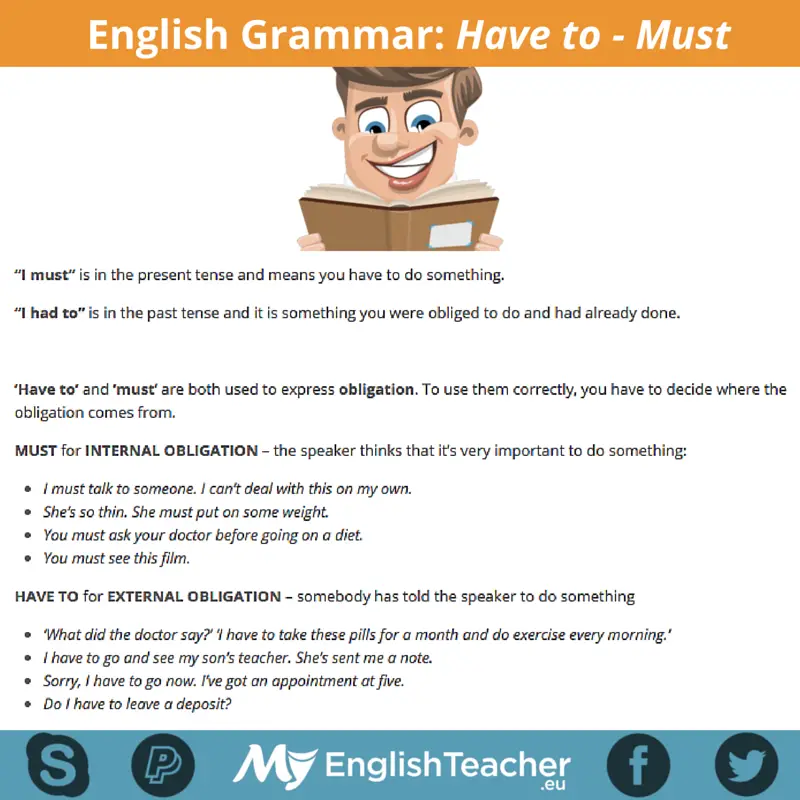
“I must” is in the present tense and means you have to do something.
“I had to” is in the past tense and it is something you were obliged to do and had already done.
’Have to’ and ’must’ are both used to express obligation. To use them correctly, you have to decide where the obligation comes from.
MUST for INTERNAL OBLIGATION – the speaker thinks that it’s very important to do something:
- I must talk to someone. I can’t deal with this on my own.
- She’s so thin. She must put on some weight.
- You must ask your doctor before going on a diet.
- You must see this film.
HAVE TO for EXTERNAL OBLIGATION – somebody has told the speaker to do something
- ’What did the doctor say?’ ’I have to take these pills for a month and do exercise every morning.’
- I have to go and see my son’s teacher. She’s sent me a note.
- Sorry, I have to go now. I’ve got an appointment at five.
- Do I have to leave a deposit?
Recommended for you:
What is the difference between MUST and SHOULD
MODAL VERB + HAVE + PAST PARTICIPLE!
HAVE GOT TO Meaning!
What is the meaning of “may have to be”?
OTHER DIFFERENCES
Use HAVE TO to talk about both internal and external obligation in the PAST or the FUTURE. MUST is only used in the present.
- I had to take James to the airport this morning.
- We had to wear an awful uniform at school.
- I’ll have to have my teeth checked this year. I haven’t been to the dentist for ages.
- You’ll have to pay these bills sooner or later.
To make QUESTIONS with HAVE TO, use the auxiliaries do/does/did/will:
- Do you have to go to the meeting?
- Does she have to call me every twenty minutes?
- Did you have to help with the housework when you were a child?
- Will you have to be there when they arrive?
To make QUESTIONS with MUST, change the word order:
- Must you go?
- Must she behave like that?
- Must he talk about football all the time?
NEGATIVES
DON’T HAVE TO expresses LACK OF OBLIGATION, it means that something is not necessary:
- You don’t have to buy a ticket. Entrance is free.
- She doesn’t have to know about it.
- I didn’t have to get up early this morning.
- You won’t have to travel so much if you get this job.
MUSTN’T (must not) expresses PROHIBITION, it means that something is not allowed:
- You mustn’t smoke here.
- He mustn’t eat dairy products. He’s allergic to milk.
- You mustn’t park on a double yellow line.
Recommended for you:
Would vs Could vs Should vs Might in English!
112 Phrases for Saying Thank You in Any Situation
What’s the difference between modal and model
How to Form Questions in English?


























